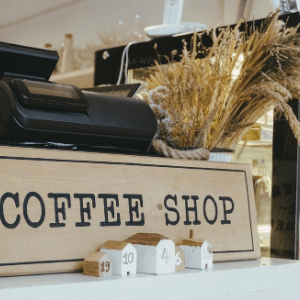
Why do coffee shops fail?
The most common reasons why most coffee shops are lack of industry knowledge and not enough funding.
Many new owners start out with good intentions, but not knowing how to run a business and underfunding often lead to situations where they have to close their doors within a short amount of time.
If you’re thinking about opening a coffee shop for the first time, there are numerous elements you need to consider.
While there are hundreds of reasons why any small business could fail, certain issues area more prevalent than others when it comes to small coffee shops.
Your industry knowledge, target market, funding, management of employees, and marketing plan all make a big difference.
Here are five of the most common reasons why small coffee shops don’t make it within the first two years.
1. Lack of Industry Knowledge
Many new coffee shop owners jump into the industry thinking they’re going to purchase an industrial-size espresso machine, immediately have customers, and earn a ton of money.
However, coffee is a lot like wine in that various beans and blends affect the acidity and taste of the brew. As a coffee shop owner, taking the time to learn about great coffee is an important part of your success.
However, mastering the art of brewing great coffee isn’t enough. You must also learn various aspects of your new business such as marketing and bookkeeping.
Read up as much about the coffee industry as possible. Attend regional events, talk with other shop owners, and be open to learning everything there is to know about brewing, marketing and selling coffee.
2. Not Enough Funding
Perhaps the most common reason why small coffee shops fail is simply not having enough money for operations. Running a new business takes lots of capital, and if you don’t have it, you’re really setting yourself up for problems.
But this isn’t an issue related specifically to coffee shops. It’s really any small business that doesn’t take the time to finance and budget accordingly during those crucial first few months.
Data from the United States Bureau of Labor Statistics (BLS) state that nearly 20% of businesses fail due to lack of funding within the first year in business. A vast majority of these failures are caused by simply not having enough money to continue operations.
For a new coffee shop, this can mean something as simple as not being able to pay location rent or keep employees on the payroll. It can also mean licensing issues, lack of marketing, food spoilage problems, or needing new equipment.
3. Management Issues
Another reason why new coffee shops fail is because of hiring issues.
If you don’t have the right team, the issues you have will trickle down to your coffee shop’s customer service. So be sure to document how you’ll approach hiring in a business plan.
Hiring the right employees who are as concerned about the success of your business as you are can be difficult. Furthermore, training staff members to make drinks and provide excellent service to your customers is usually quite tough if you don’t have experience in management. This can lead to negative reviews and a downturn of business that usually causes coffee shops to fail.
To solve this, make sure you are hiring staff members that are as fanatical about the coffee industry as you are.
Offer competitive wages that are just a little bit higher than that of competitors in the area. And it is also important to ensure you’re just good at being a boss, as your employees won’t stick around if they are unhappy working for your business.
4. No Marketing Plan
One more area small coffee shops struggle with is getting the word out that they’re open. Marketing a coffee shop takes a real knack for understanding the restaurant industry coupled with the ability to increase word of mouth.
If you don’t write a marketing plan, it can be incredibly hard to find enough customers and meet your sales goals.
Instead, take a look at what other small coffee shops across the country are doing and try to mimic this as much as possible. In addition to having a strong social media presence, closely monitor your listings on Yelp and Google for any negative reviews, while always responding with gratitude to the positive ones.
Tons of positive online reviews are one thing that can really set a coffee shop apart from competitors, so make sure to encourage patrons to leave positive reviews.
Finally, get out into your community as much as possible. Offer free drinks to first responders or sponsor a local youth baseball team. The more people see you making a difference in your neighborhood, the more likely they are to stop by for a cup of java during the week.
5. Misunderstanding Your Target Market
One of the most common reasons why small coffee shops fail is that they simply don’t understand their target market. Opening a coffee shop in an area where nobody buys gourmet coffee is a surefire way to fail in a relatively short period of time.
Not everyone who comes into your coffee shop is going to want to order a latte or an espresso. Learn how to upsell and cross-sell.
It’s important for your coffee shop to offer a varied menu that includes other items such as smoothies, teas, bakery items, and snacks. This type of expanded menu helps make your business more likely to receive repeat patronage from customers.
Look at what types of coffee people in your target market enjoy most. Just because you like espresso doesn’t mean someone else does. Pay attention to what your customers want and make decisions that match these needs.
The Final Word On Why Do Coffee Shops Fail
As you can see, coffee shops fail for many reasons, but your venture doesn’t have to join a list of unsuccessful ventures.
To run a profitable coffee shop, it’s important to have a solid knowledge of the coffee industry and enough capital to pay for expenses. Employees should love where they work, and your customers must keep coming back for more.
